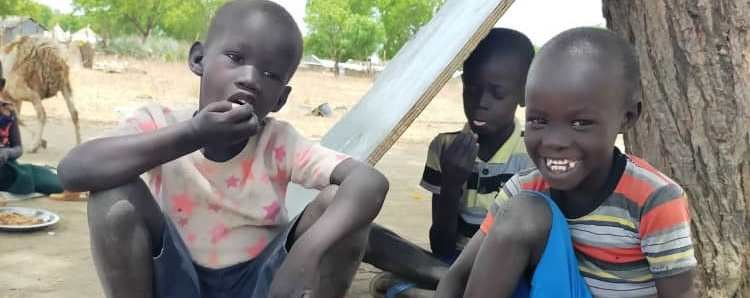Street children in Bor town of Jonglei State are complaining that they are finding it more difficult to get something to eat in order to survive, as Covid-19 is affecting the economy.
“I left my father's house on my own volition. And now am here in the market, I sleep in the open and eat leftovers,” said Rin Alier, a street child living in Marol Market-Bor. “I am ready to go to school if I were to be provided with food and a place to stay. We are also ready for any work.”
As South Sudanese struggle to provide for their families in the times of the COVID-19 pandemic, there are more than 50 children, aged between 8 and 20, staying on the streets without parental care in the city of Bor, according to government officials. And with the economic situation worsening, there are fears there will soon be more.
Child protection is incumbent upon the government in South Sudan Constitution. But, despite this provision, many children live on the streets in major towns of the country with no access to basic services.
In an interview carried out by Radio Tamazuj in the capital Bor, Abuor Marial, a 15-year-old boy, said he has been struggling to survive after coming to Bor town in 2016.
“I am from Awerial County (Lakes State), I dropped out from school in grade 4 because no one paying my fees after my father died in Juba in 2016,” said Marial. “Now, in Bor town, life is even more difficult. We collect and sell empty water bottles to buy food. Sometimes, a restaurant owner gives us unsold food in the evening.”
Paul Monykuer, the town’s acting mayor, said that a center is already established to rehabilitate the street children.
“As a government with partners, we opened the center to enroll and rehabilitate those street children. There are between 50 to 70 of them in Bor. They hail from Bor, Twic East, Duk and Awerial areas,” He said.
The municipal official urged parents and aid agencies to support government in the rehabilitation of the street children.
Alith James, a 14-year-old street child, said they could not return to their villages despite COVID-19 outbreak due to stigma and discrimination.
“In 2017, we were enrolled in an orphanage in Bor. But we left because of insults from children in the neighborhood and even those who get us food,” he lamented.
Rachel Akwash, the head of the Jonglei State Women’s Association (JSWA), blamed the rise in the number of street children on the inability of parents to cater for their families due to economic meltdown in the country. The women leader urged the government and aid agencies to provide women loans to let them venture into businesses to sustain their families.
Alith is anxious that COVID-19 could quickly spread among the street children, as they stay in the open without enough food and access to quality health services.
Dr. Bol Chaw, the medical director of Bor Hospital, said they treat street children for injuries and other illnesses without charges.
The medical doctor has called for an intervention, saying it is difficult for the children to thrive amid the COVID-19 outbreak.
21-year-old Kur Magol, urged the government to support them, by providing vocational training skills so that they live independently.
“We want vocational training on mechanics, tailoring, welding and other skills to help us in future. I have been a street child since 2015,” he said. “Life is not good. In the last months, four of us died of sickness.”
Daniel Malith, the Director General in the Jonglei youth & sports ministry, said a plan is underway to enroll those between 18 and 45, including street children, into a vocational training center.
Bior Ajang Jaden, the executive director of the national organization ATAKA HUB, said there is a need for the government to develop effective child protection policy for the children to realize their potential.
“We have been working with these children, but there is a lack of a policy that protects children,” he said.




